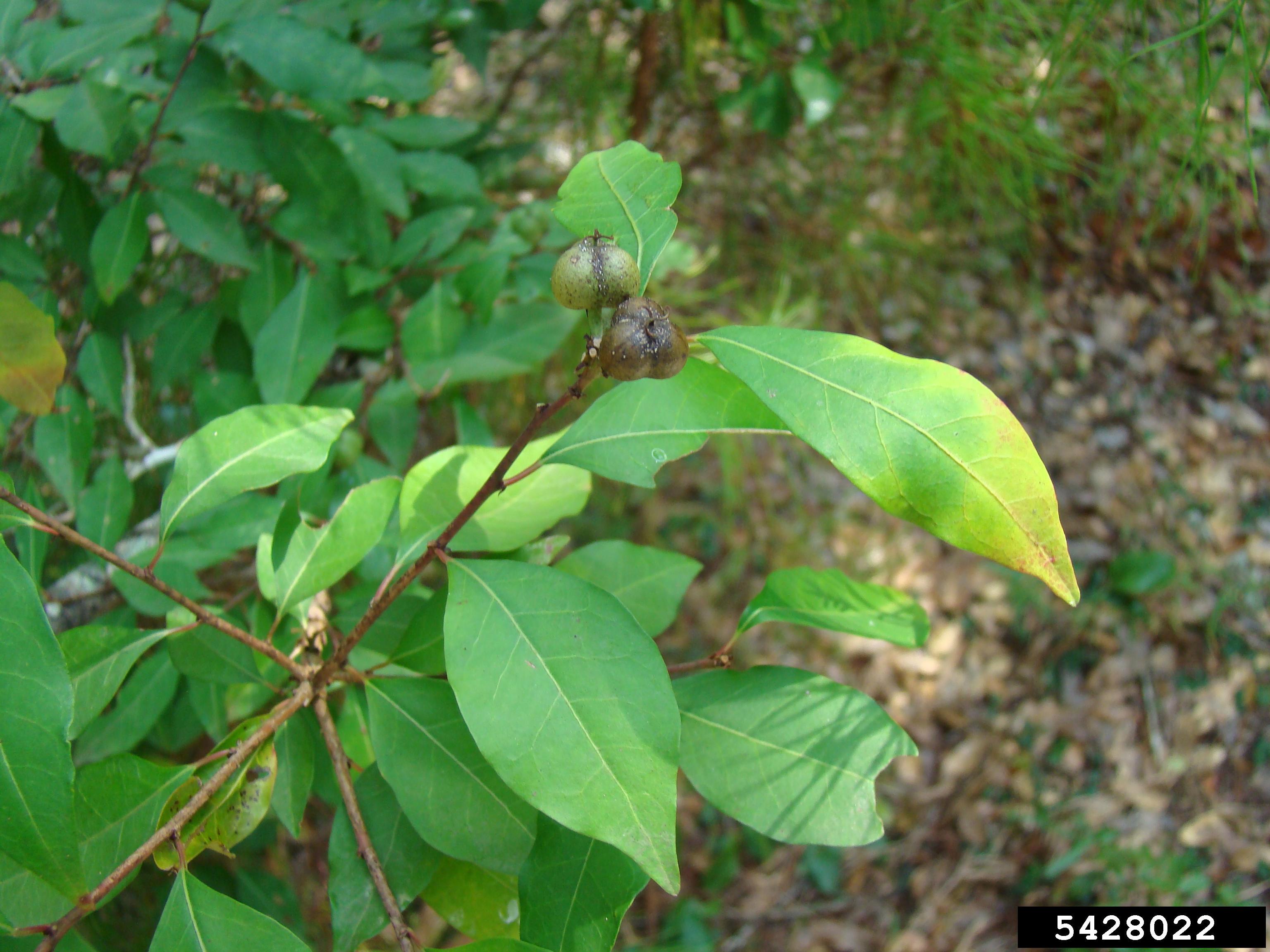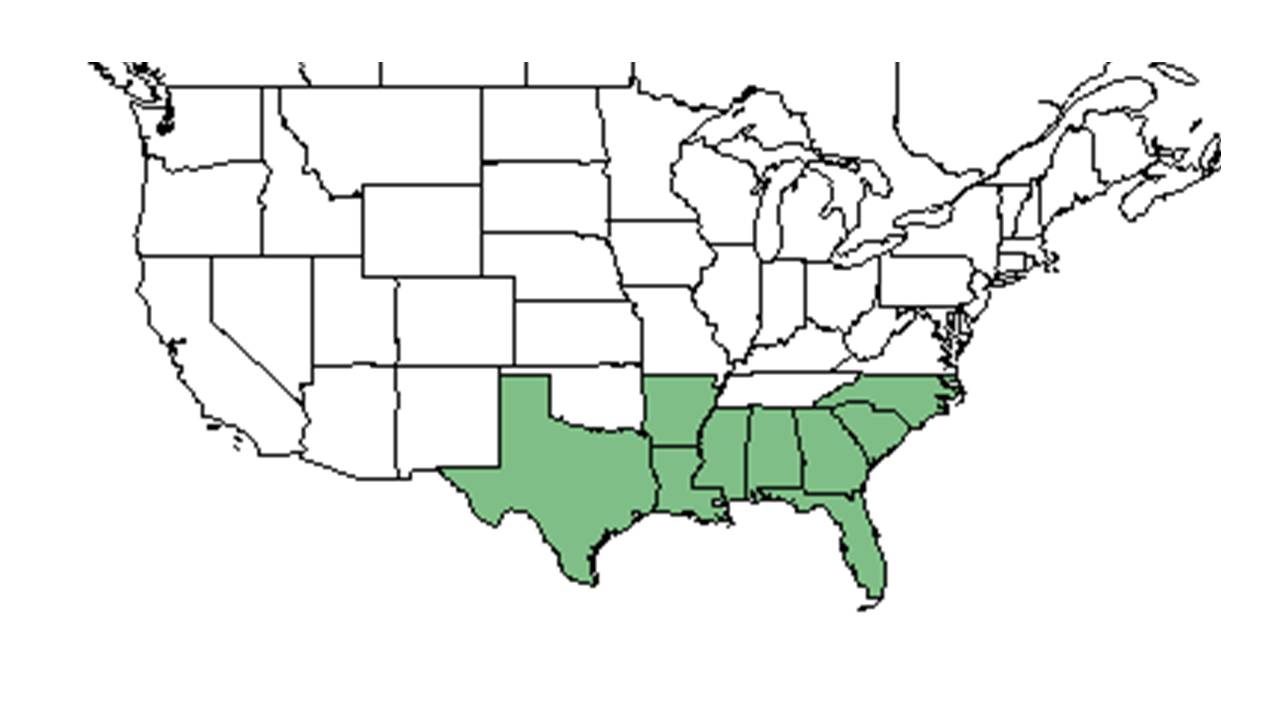Ditrysinia fruticosa
| Ditrysinia fruticosa | |
|---|---|

| |
| Photo by Rebekah D. Wallace, University of Georgia, Bugwood.org | |
| Scientific classification | |
| Kingdom: | Plantae |
| Division: | Magnoliophyta - Flowering plants |
| Class: | Magnoliopsida – Dicotyledons |
| Order: | Euphorbiales |
| Family: | Euphorbiaceae |
| Genus: | Ditrysinia |
| Species: | D. fruticosa |
| Binomial name | |
| Ditrysinia fruticosa (W. Bartram) Govaerts & Frodin | |

| |
| Natural range of Ditrysinia fruticosa from USDA NRCS Plants Database. | |
Common name: Gulf Sebastian-bush
Contents
Taxonomic notes
Synonyms: Sebastiania fruticosa (W. Bartram) Fernald; Sebastiania ligustrina (Michaux) Müller of Aargau
Description
D. fruticosa is a perennial shrub/subshrub that is a member of the Euphorbiaceae family.[1]
This description was published in 1964 stating, Ditrysinia fruticosa is a "monoecious shrub, 1.5-2.5 m tall. Leaves alternate, elliptic to lance-elliptic, 3-7.5 cm long, 0.8-3.5 cm wide, entire; petioles 2-10 mm long, ciliate toward apex and on base of blade, with a pair of glandular stipules at base. Racemes 1-4 cm long, pistillate flowers 1-5 at the base, staminate numerous above. Sepals 3; petals absent; stamens 3; stigmas 3. Each flower subtended by a bract, on each side of which occurs a large gland. Capsule 3-locular, 6-6.5 mm long, broader than long. Seeds light brown, ovoid, 4.5-5 mm long; caruncle obsolete."[2]
Distribution
D. fruticosa is native to the southeastern coastal plain from southeast North Carolina south to central peninsular Florida and west to eastern Texas.[3]
Ecology
Habitat
Generally, D. fruticosa can be found in swamp forests as well as other moist to wet and mostly shaded habitats.[3] This species is listed as facultative and facultative wetland, where it mostly occurs in wetland habitats, but can also quite commonly occur in non-wetland habitats.[1]
Phenology
This species can be seen to flower from May until June and fruit from July to October.[3] It has been observed to flower from March to June with peak inflorescence in April and May.[4]
Conservation and management
D. fruticosa is critically imperiled in Arkansas and imperiled in North Carolina.[5]
Cultivation and restoration
Photo Gallery
References and notes
- ↑ 1.0 1.1 USDA, NRCS. (2016). The PLANTS Database (http://plants.usda.gov, 3 May 2019). National Plant Data Team, Greensboro, NC 27401-4901 USA.
- ↑ Radford, Albert E., Harry E. Ahles, and C. Ritchie Bell. Manual of the Vascular Flora of the Carolinas. 1964, 1968. The University of North Carolina Press. 667. Print.
- ↑ 3.0 3.1 3.2 Weakley, A. S. (2015). Flora of the Southern and Mid-Atlantic States. Chapel Hill, NC, University of North Carolina Herbarium.
- ↑ Nelson, G. PanFlora: Plant data for the eastern United States with emphasis on the Southeastern Coastal Plains, Florida, and the Florida Panhandle. www.gilnelson.com/PanFlora/ Accessed: 3 MAY 2019
- ↑ [[1]] NatureServe Explorer. Accessed: May 3, 2019